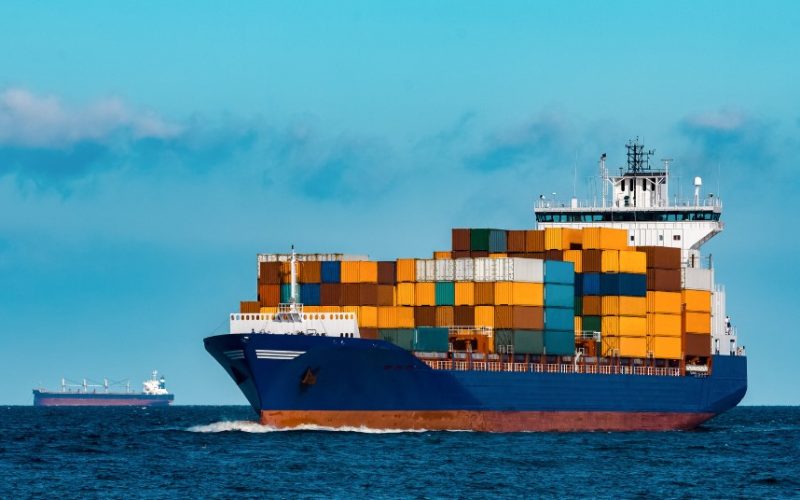When it comes to international trade, Canada has always been a key player in the global market. With a focus on importing goods that meet its high quality and safety standards, Canada has established strong trading relationships with countries worldwide. One such country is Russia – known for its vast natural resources and diverse economy. But what exactly does Canada import from Russia?
In this blog post, we’ll explore the trading relationship between these two nations and uncover some surprising facts about their imports and exports. From oil and gas to agricultural products and beyond, let’s look at what makes this partnership so important for both countries!
What Does Canada Import From Russia?
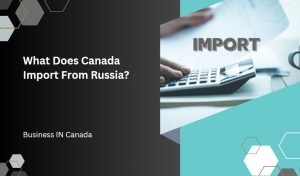
Canada and Russia have a long and complex trade relationship. Canada is one of the world’s largest trading nations, and Russia is an essential partner in that trade. The two countries have a history of close economic ties, and their trade relationship has evolved over time.
Today, Canada-Russia trade is governed by the Canada-Russia Trade Agreement, which came into effect in 2007. The agreement provides a framework for bilateral trade and investment and sets out specific rules and procedures for cooperation between the two countries.
Since the agreement came into effect, Canada-Russia trade has grown steadily.
The majority of Canadian exports to Russia are mineral fuels and oils (including crude oil), machinery and equipment, vehicles, wood products, paper products, cereals, metals and plastics. Meanwhile, Russian exports to Canada are led by mineral fuels and oils (including natural gas), metals and metal products (including aluminium), chemicals (including fertilizers) and wood products (including pulp and paper).
The two countries have also established a number of joint ventures and other investments, including aerospace projects, energy projects and research collaborations. Canada and Russia are World Trade Organization (WTO) members and regularly participate in WTO negotiations and other international trade initiatives.
Overall, the Canada-Russia trade relationship is important for both countries and will likely remain so.
Overview of Canada’s Imports from Russia
In 2018, Canada imported $2.6 billion worth of goods from Russia, making it Canada’s 11th largest supplier of imported products.
The majority of Canada’s imports from Russia are mineral fuels and oils (50%), followed by aluminium (14%), iron and steel products (9%), and machinery (6%).
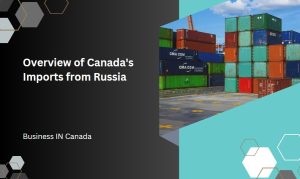
Canada’s imports of Russian mineral fuels and oils have increased significantly recently, from $583 million in 2010 to $1.3 billion in 2018. This is largely due to higher global crude oil and natural gas prices.
Aluminium exports from Russia to Canada have also grown steadily, from $325 million in 2010 to $367 million in 2018. This is due to increased demand for aluminium products globally and Russia’s position as one of the world’s leading producers of aluminium.
Iron and steel products make up a smaller share of Canada’s imports from Russia, but these exports have increased in value since 2010 when they were worth $316 million. In 2018, they reached a value of $536 million. This is likely due to increased demand for these products globally and Russia’s position as a leading iron and steel producer.
Machinery exports from Russia to Canada have remained relatively steady over the past decade, ranging from $151 million in 2010 to $160 million in 2018.
Types of Goods Imported from Russia
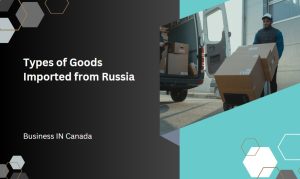
Metals and minerals: Russia is a major producer of metals and minerals, such as aluminium, nickel, platinum, and diamonds. In 2022, Canada imported $60.72 million worth of Russian metals and minerals.
Timber: Russia has vast forests that are a major source of timber for the global market. In 2022, Canada imported $26.98 million worth of Russian timber.
Machinery: Russia is a leading machinery producer, such as tractors and construction equipment. In 2022, Canada imported $8.93 million worth of Russian machinery.
Chemicals: Russia is a major producer of various chemicals, such as fertilizers and petrochemicals. In 2022, Canada imported $35.48 million worth of Russian chemicals.
Crude oil and petroleum products: Canada imported $47.73 million worth of crude oil and petroleum products from Russia in 2022. This comprised the majority of Canada’s total imports from Russia, at 63.4%.
Grain: Canada imported $5.58 million worth of grain from Russia in 2022, making up 4% of Canada’s total imports from Russia.
Fertilizers: Canada imported $191.53 million worth of fertilizers from Russia in 2022, making up 3.9% of Canada’s total imports from Russia.
Vehicles: Canada imported $1.66 million worth of vehicles from Russia in 2022, making up 1.3% of Canada’s total imports from Russia.
Food products: Canada imported $340.26K worth from Russia in 2022, making up 1.2% of Canada’s total imports from Russia.
Textiles and apparel: Canada imported $444.49K worth of textiles and apparel from Russia in 2022, making up 1.2% of Canada’s total imports from Russia.
Impact of Canada’s Imports from Russia on the Economy
Canada is a major importer of Russian oil and gas. In 2016, Canada imported approximately $15.6 billion worth of Russian oil and gas, making it the second-largest destination for Russian energy exports after China.
The majority of Canada’s imports from Russia are energy products, which account for over 80% of the total value of Canadian imports from Russia. Oil and gas comprise the bulk of these energy imports, with Canadian companies importing approximately $11.4 billion of Russian oil in 2016 alone.
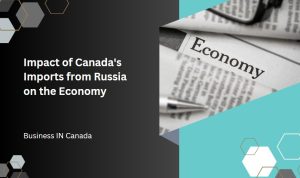
While Canada is a net importer of energy from Russia, the trade is not without its benefits for the Canadian economy. For one, the importation of Russian oil and gas supports thousands of jobs across the country. According to the Canadian Association of Petroleum Producers (CAPP), the upstream oil and gas industry directly employed nearly 300,000 Canadians in 2015, with many more indirect jobs supported throughout the supply chain.
What’s more, CAPP estimates that every direct job in the upstream oil and gas industry supports an additional seven jobs elsewhere in the economy – meaning that Russian energy exports support over 2 million jobs across Canada.
In addition to supporting employment, Canada’s imports of Russian oil and gas generate billions in government revenue each year through taxes and royalties paid by energy companies. This revenue helps fund critical public services like healthcare and education and infrastructure projects that benefit all Canadians. Federal government revenues from the upstream
Advantages & Disadvantages of Importing from Russia
The advantages of importing from Russia include the following:
- Proximity to the Canadian market
- Low production costs
- High-quality products
Disadvantages of importing from Russia include the following:
- Unpredictable political and economic conditions
- Potential for import/export restrictions
- Language barriers
Conclusion
This article has explored the trading relationship between Canada and Russia, looking in particular at what Russia exports to Canada. We have seen that while there is a healthy trade between the two nations, it is still relatively small compared to other countries.
FAQ – What Does Canada Import From Russia?
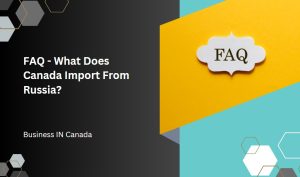
What products does Russia export to Canada?
Russia is one of Canada’s top 10 trading partners, with bilateral trade totalling $6.4 billion in 2016. Canadian exports to Russia include:
- Wheat
- Canola
- Barley
- Pork
- Wood and paper products
- Fertilisers
Russia is a large and diversified economy and is a leading exporter of oil, natural gas, metals and timber. It also exports various manufactured goods, such as machinery, vehicles and chemicals.
What is Canada trade with Russia?
Canada is a key trading partner with Russia, and the two countries have strong economic ties. Canada exports a variety of goods to Russia, including wheat, canola, barley, pork, beef, and lumber. Russia is also a major crude oil and natural gas supplier to Canada.
What are the main imports from Russia to Canada?
The main imports from Russia to Canada are crude oil, natural gas, and aluminium. Crude oil is the largest import, accounting for about half of all Russian imports to Canada. Natural gas is the second largest import, accounting for about a quarter of all Russian imports to Canada. Aluminum is the third largest import, accounting for about 15% of all Russian imports to Canada.
Does Canada buy gas from Russia?
No. Canada does not buy gas from Russia, and they stopped it in 2021. The country has its own vast reserves of natural gas, which it exports to the United States. Russia is a major exporter of natural gas to Europe, but Canada does not import any Russian gas.
What is most import by Russia?
Russia is one of Canada’s top trading partners and has a strong economic relationship. Canada imports a variety of goods from Russia, including oil, gas, minerals, and forestry products.
Russia is an important supplier of energy to Canada. Canadian companies import Russian oil and gas to help meet domestic demand. Russia is also a major supplier of uranium, which is used to generate electricity in Canada.
Canada also imports minerals such as gold, copper, and nickel from Russia. These minerals are used in various industries, including manufacturing and construction. Forestry products are another key export from Russia to Canada. These products are used in the paper and lumber industries.




